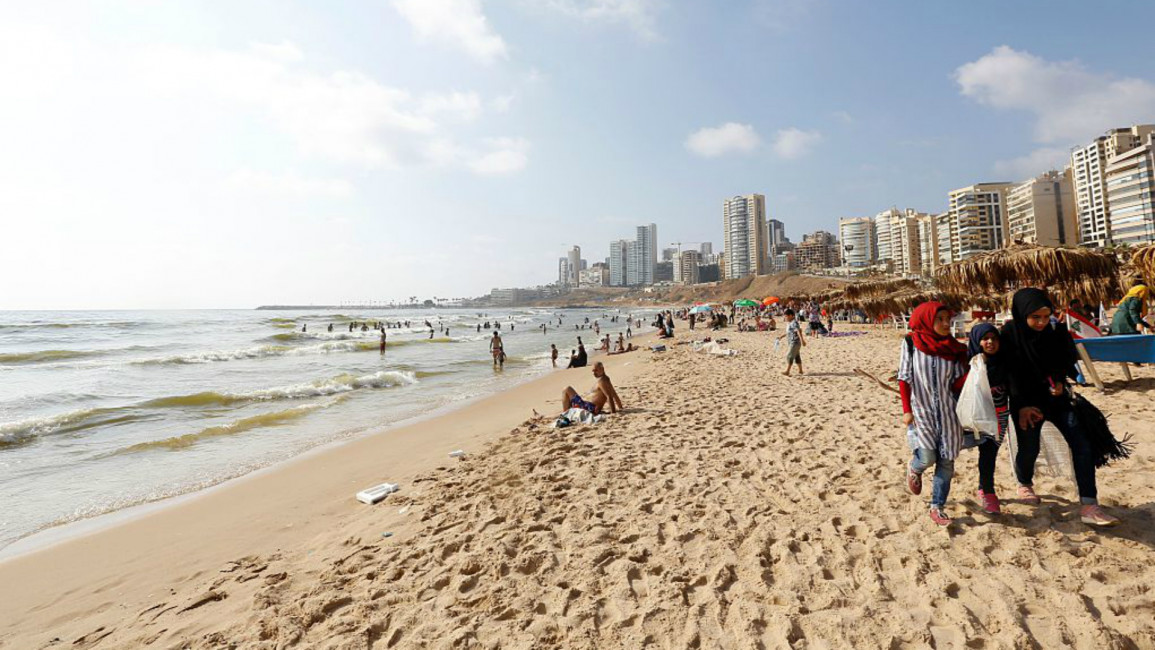
Lebanon: An island of stability among Middle East chaos
For once in its relatively short history, Lebanon appears to be entering a period of stability when other countries and the Middle East are either engulfed in war or plagued by increasing political and sectarian tensions.
In the past decade, Lebanon has gone from being on the brink of civil war, to facing a wave of terrorism and paralysis of its political institutions. But no longer, it would seem, at least for now, as the country is faring better than most of its neighbors.
Many countries and powers in the region have been struggling with escalating acts of violence. Lebanon, on the other hand, seems to have successfully cracked down on its armed groups.
The last attack to have taken place in Lebanon and that targeted the Christian border area of Qaa was in fact a failed attempt by Islamic State (IS) to infiltrate the country. The organisation was planning to target larger populous centers such as the capital Beirut.
Prior to that, another attack, reminiscent of the mass shootings in Paris in November 2015, was also foiled by Lebanese security forces. By last June, Lebanese police had arrested five Islamic State linked cells. Monthly arrests of militants planning acts of violence have been commonplace.
On the political level, rival factions seem to have put a lid on their differences. After nearly two years of bickering, Lebanese factions agreed on October 31 on the election of General Michel Aoun at the head of the state.
 |
For the first time, Lebanese power-brokers reached political consensus without the heavy handed intervention of their regional backers |  |
The move was quickly followed by the appointment as Prime Minister of his former political nemesis Saad Hariri, head of the Future Movement. Nearly a month and a half later, Hariri announced the formation of a 30 minister government including factions located at opposing ends of the Lebanese political spectrum.
This haphazard bunch includes pro-Iran and Syrian Hezbollah as well as state minister Ali Kanso from the Syrian National Socialist Party and staunch anti-Syrian and anti-Iran figures such as Education Minister Marwan Hamadeh and Moin Merhebeh (Future movement).
| Read More: Overcoming our underdevelopment | |
This unlikely convergence of opposing regional loyalties in the current cabinet ushers in a new political phase dominated by pragmatic calculations.
A fresh deal appears to have been cut between wary political factions. For the first time, Lebanese power-brokers reached political consensus without the heavy handed intervention of their regional backers.
This is indicative of two new realities dominating the Lebanese political scene.
 |
For the first time, Lebanese power-brokers reached political consensus without the heavy handed intervention of their regional backers |  |
First, Iran appears to have provided Shia Hizballah with a large margin to manoeuver on its home turf, with Tehran recognising the important role played by the organisation at the regional level.
Secondly, it is also indicative of the realisation by the anti-Iran and anti-Syria Lebanese coalition - including the Sunni Future Movement, the Christian Lebanese Forces and the Druze Socialist Party - of a clear shift in the balance of power in Syria, in favor of Iran and the regime of President Bashar al-Assad.
This shift took place concomitantly with a retreat from the Levant, not only of the United States, but also of Gulf countries. The fall of Aleppo is testament to Gulf refocus on its closer neighbours, namely Yemen.
After a period of costly enmity, due to Hizballah's incendiary statements against Arab countries, Lebanon seems to be rekindling its relations with Gulf powers. President Aoun stated this month that he will be visiting Saudi Arabia to normalise bilateral ties.
Prior to 2011, Gulf countries fueled Lebanon's tourism and real estate revenues but as relations soured with the land of the cedar, they issued travel bans and sold their assets.
 |
Despite the positive outlook, Lebanon faces many challenges, namely in the form of the mounting public debt |  |
With the end of year festivities last month, Gulf Arabs were returing en masse to Beirut. Lebanese newspaper L'Orient-Le jour, quoting official statistics reported that over half a million people were expected to visit Lebanon for the end of year holidays.
The country's new found stability will certainly translate at the economic level. Central bank foreign reserves have increased to record highs by an operation of financial engineering devised by the central bank governor Riad Salameh.
Reserves were boosted to $41 billion from $35 billion, a much needed operation ensuring greater financial stability to banks and the Lebanese pound.
Despite the positive outlook, Lebanon faces many challenges, namely in the form of the mounting public debt at $71 billion, 20 percent from of which comes from the mismanaged electricity sector.
The new political consensus should be used for launching much needed economic and governance reforms to bolster Lebanese society.
Mona Alami a non-resident fellow with the Atlantic council covering Middle East politics with a special interest in radical organizations. Follow her on Twitter: @monaalami
Opinions expressed in this article remain those of the author and do not necessarily represent those of The New Arab, its editorial board or staff.




